
A pub manager who put his pounding headaches down to his busy lifestyle was stunned to discover he actually had a brain tumour.
Ben Wilson, 36, from Ackworth, West Yorkshire was working long hours as the area manager of 10 pubs when he first started suffering daily headaches in January 2020 – so, putting it down to his busy work schedule, he tried to get more sleep and drink more water.
It was only when he was furloughed because of Covid three months later, and his life slowed down but he continued to have headaches and also dizziness, that he realised something was wrong and called his GP.
Ben, who lives with his NHS-worker partner, who he prefers not to name, said: “I’ve always tried to just look after myself rather than running to the doctor or thinking the worst.”
“So, before lockdown, I’d just drunk more water and tried to get more sleep to deal with the headaches.”
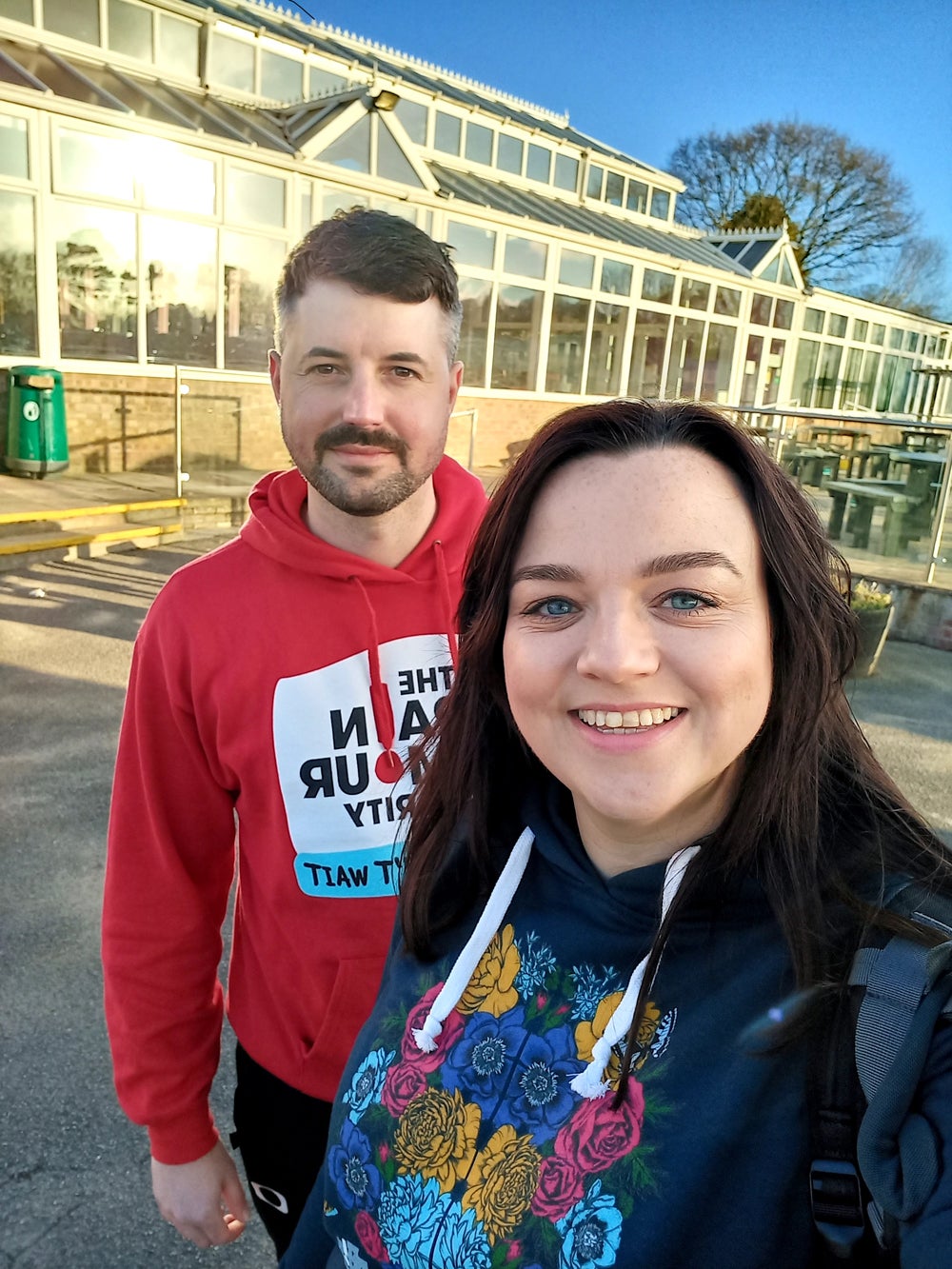
He added: “But when I was furloughed, I didn’t have to work anymore or make long journeys but the headaches – a pounding sensation across my head that seemed to last all day long – were still there.
“I realised then that it couldn’t be my busy life.”
Always fit and active, Ben’s life changed drastically when Covid struck.
He said: “Obviously the pub industry was hit hard by the lockdown. I was doing a full time job. Then I was suddenly at home while my partner was still working for the NHS.”
After suffering a whole month of headaches while furloughed, Ben was finally spurred into taking action at the start of May 2020.
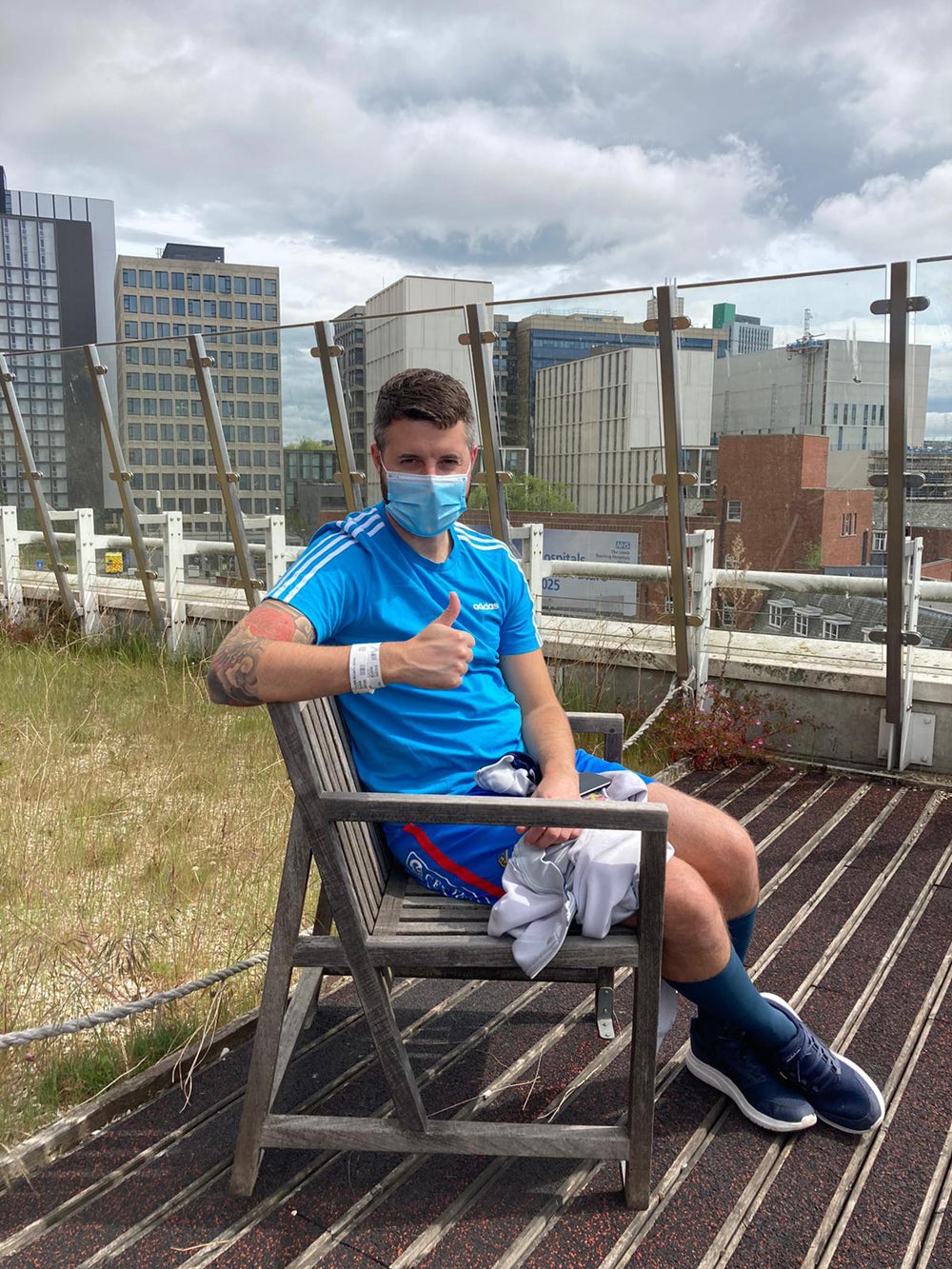
He explained: “I was in the garden pottering around when I realised I had to do something.
“I had this pounding and dizziness in my head when I tipped my head back, like if I was looking at the sky or drinking from a bottle or can.
“I searched online and assumed it was vertigo. Definitely not a brain tumour.
“But that day I finally realised it wasn’t random. It was only when I moved my head that way.”
Ben was given a telephone appointment soon after, on a Tuesday morning, but the doctor was so concerned by his symptoms he was asked to come in urgently for a face-to-face appointment.
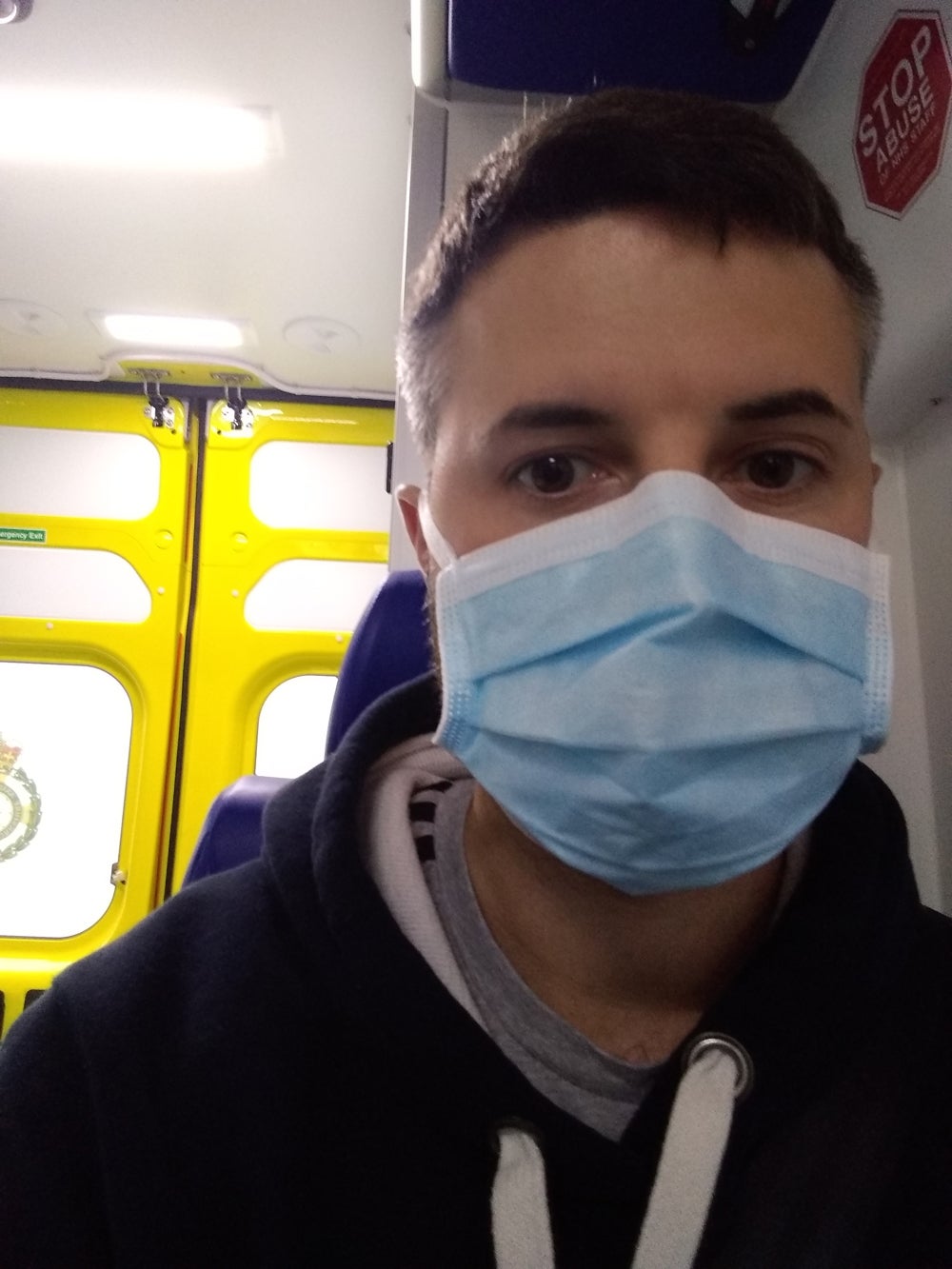
He said: “That was my first indication that something was seriously wrong, as obviously at the height of Covid, they weren’t in a rush to have people in the surgery.”
He attended the appointment later that same morning and was asked one crucial question by the doctor – whether his headaches were the worst he had ever experienced.
When Ben said yes, he was told to head straight to Pinderfields General Hospital in Wakefield.
Ben said: “I was given a CT scan straight away. When I was called back in, the lady explained they’d found a very large growth on my brain.
“That was a Tuesday and I didn’t go home for two weeks.”
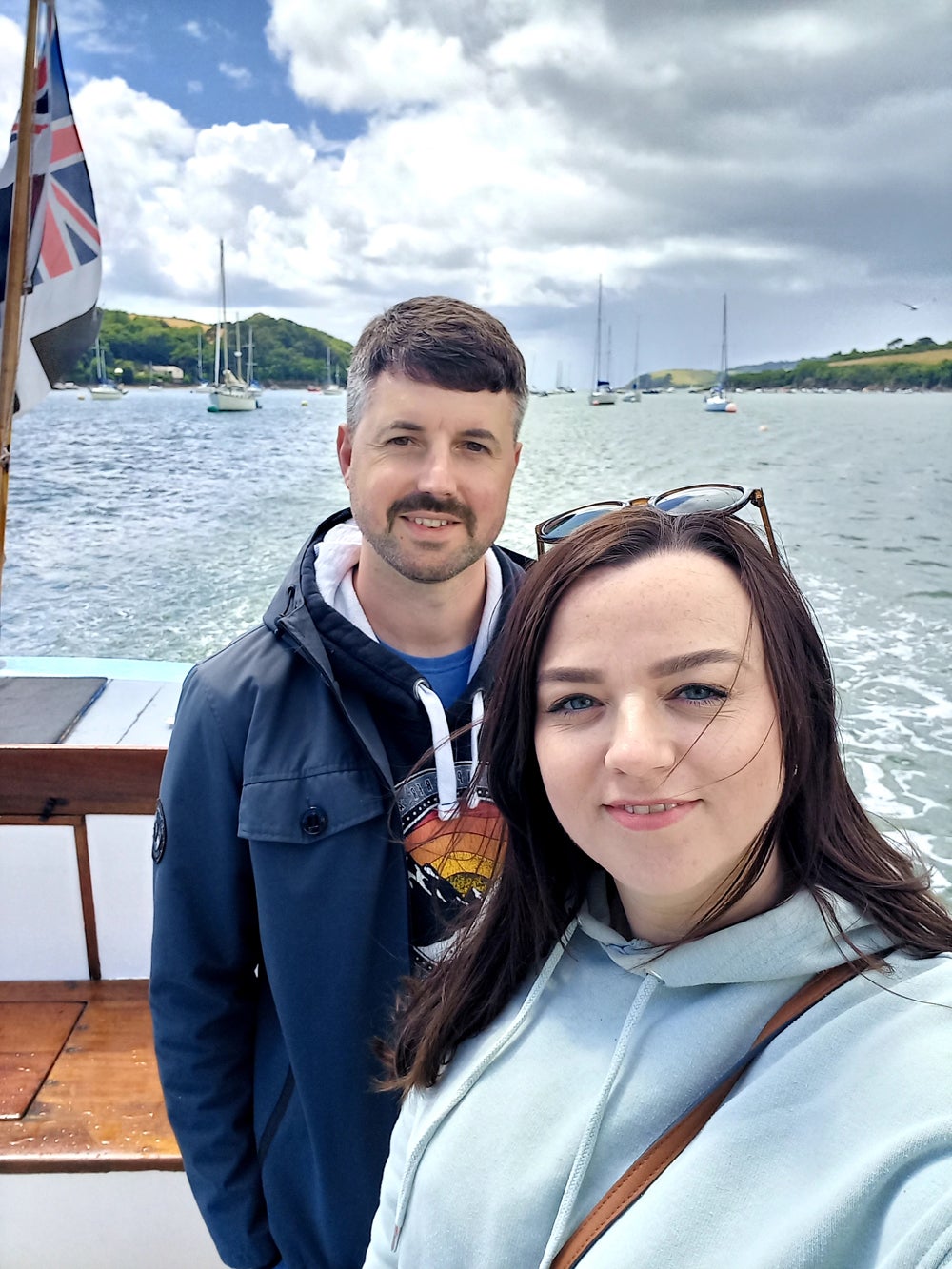
Though doctors could not initially say what type of tumour Ben had, it was later diagnosed as a slow growing begin tumour called a pilocytic astrocytoma.
It was suggested the tumour, which contained both solid and liquid matter, may have been growing for up to 10 years on Ben’s cerebellum – an area at the back of the brain that plays an important role in movement, co-ordination and balance.
In a twist of fate, Ben was initially admitted to the same neurology ward where his long-term partner worked as a physiotherapist technical instructor, though she was on leave due to his health issues.
Ben said: “It was all just such a huge shock. I don’t feel I really had time to take it in.”
On 12 May, exactly a week after he had first seen his GP and after being transferred to Leeds General Infirmary, Ben underwent an eight-hour surgery under general anaesthetic to remove the tumour.
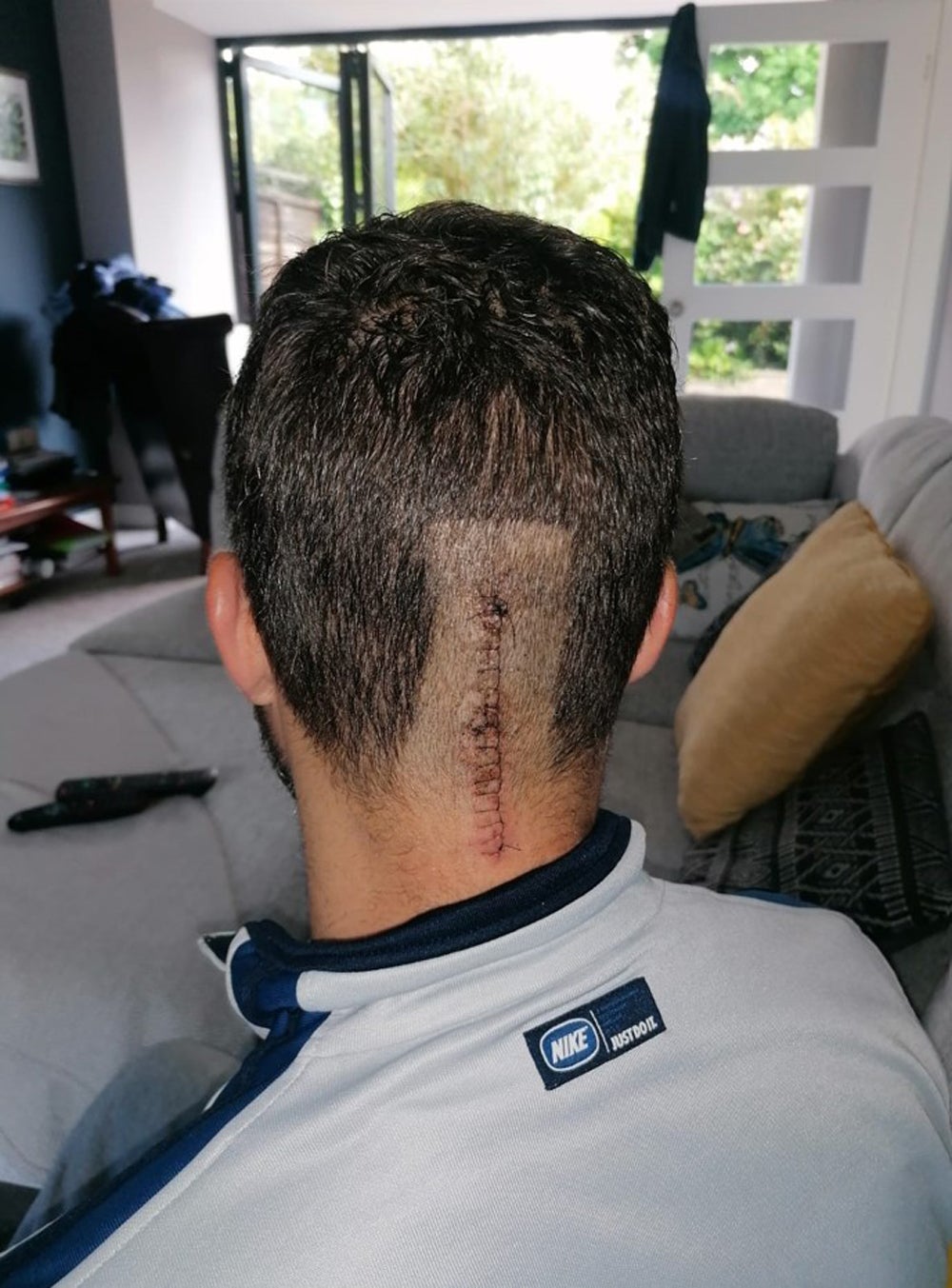
When he woke up in intensive care, he had a dedicated member of staff by his bedside night and day for 24 hours, ensuring he could stay awake, be roused and checking his vital signs.
Ben said: “I felt horrendous. The scarring was on the dead centre back of my head so lying down was quite difficult. I was very uncomfortable. I was in a lot of pain.”
Incredibly, Ben was discharged exactly a week on.
Still furloughed, he was able to recuperate at home, limiting activities and resting a lot for the required six weeks.
Ben says: “It was such a whirlwind from ringing the doctors to two weeks later you’re home with a scar and needing aids to get in the bath.”
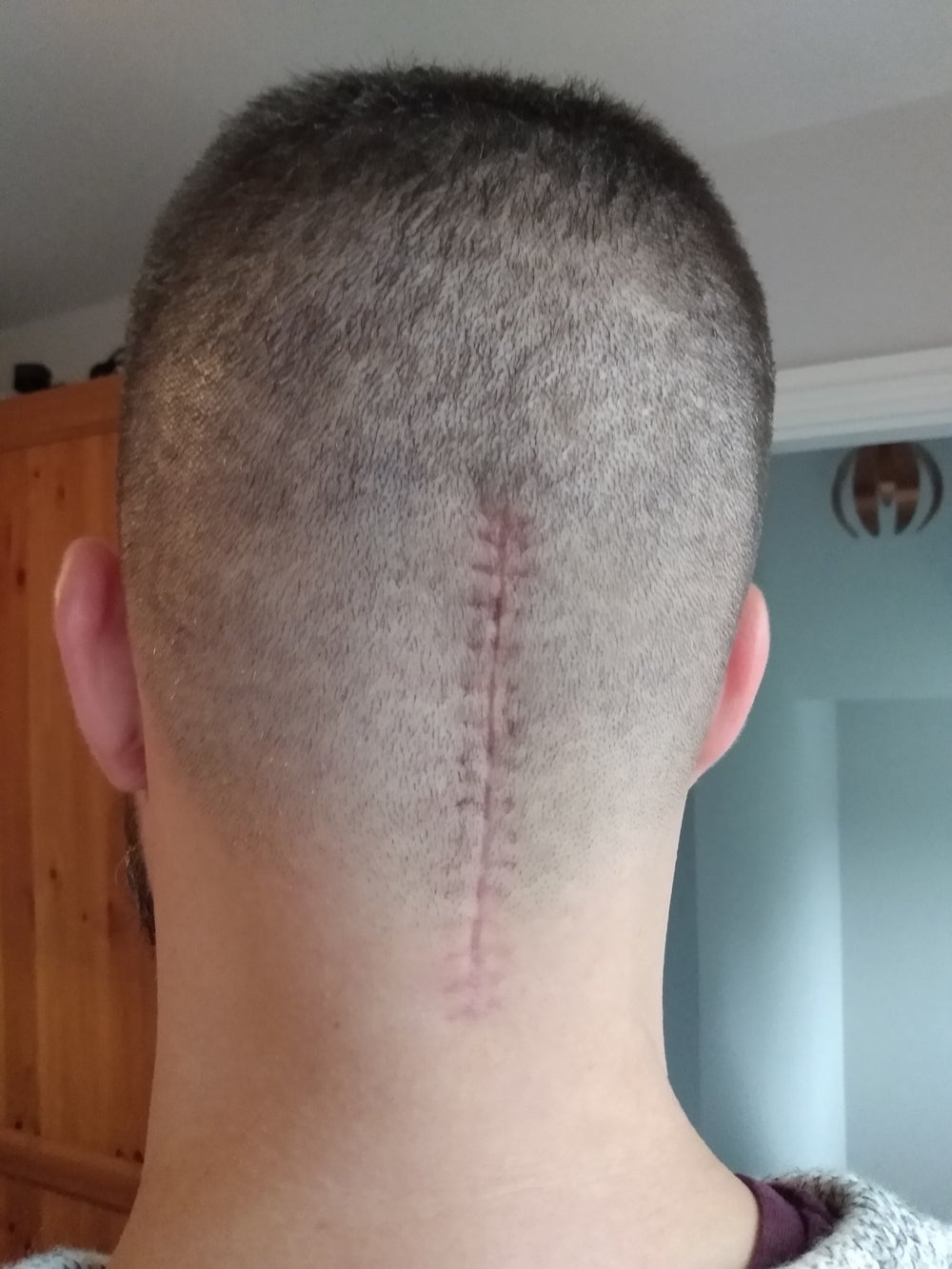
He added: “At the peak of my recovery, for weeks following the operation, I was taking 27 tablets a day.”
But Ben recovered quickly. Within six months, he was able to drive again, and around the same time, he returned to work – something he is much better placed to manage now his headaches are a thing of the past.
Ben said: “I feel really lucky my tumour wasn’t cancerous and to have recovered so well. I feel generally fine now and just have some lingering dizziness now and again.”
He is sure that, had it not been for the first lockdown, he would have gone longer without a diagnosis or the surgery he needed.
Ben said: “My experience with having a brain tumour is interwoven with everyone else’s experience of Covid-19.”
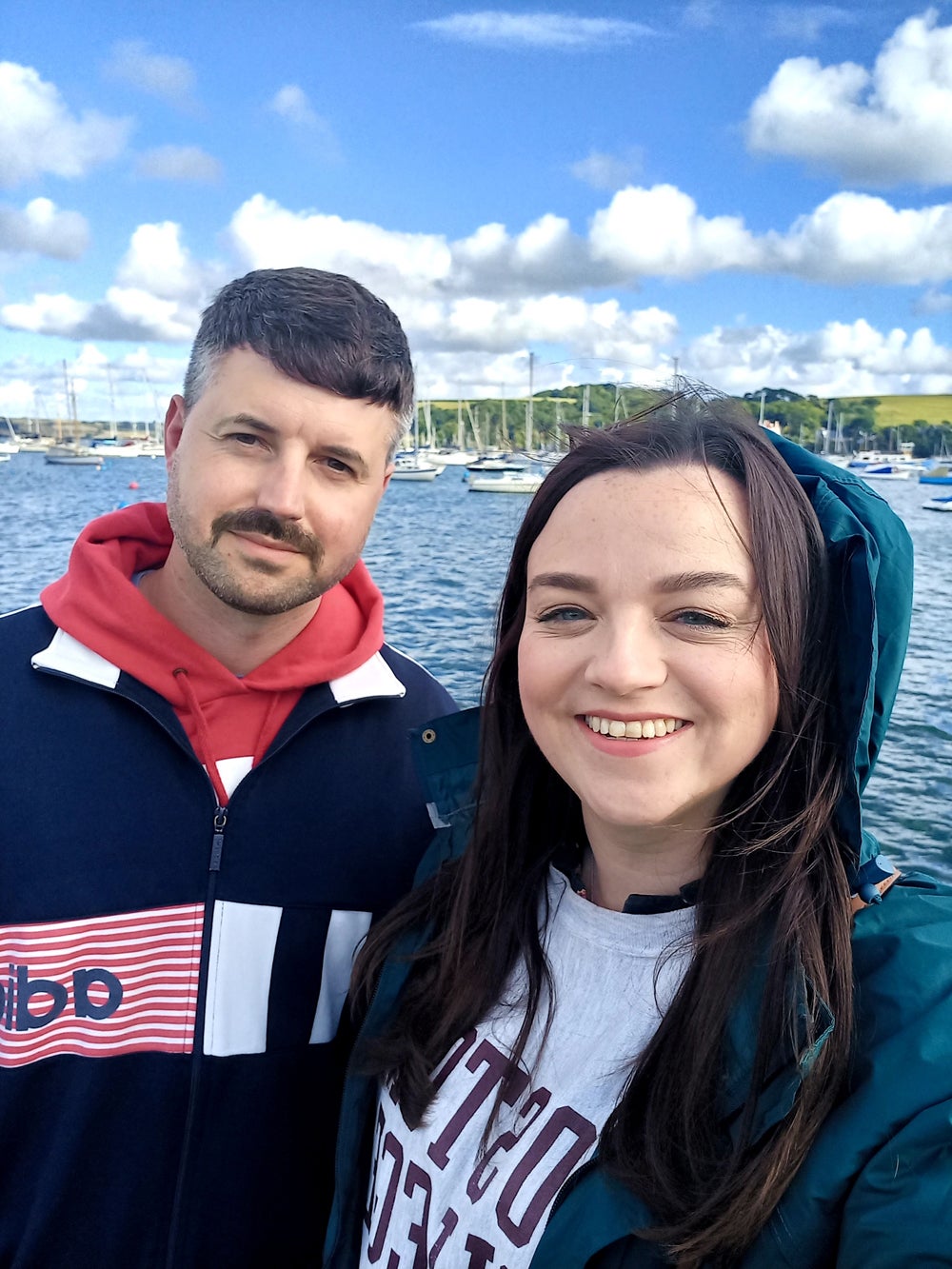
He explained: “I can’t say what would have happened if I hadn’t got it checked out when I did, but it wouldn’t have been good. I imagine my headaches would have only got worse.”
Thankful to have his health back, Ben is now supporting The Brain Tumour Charity in their new campaign Better Safe Than Tumour, which aims to highlight the symptoms of brain tumours in both children and adults.
Dr David Jenkinson, Chief Scientific Officer at The Brain Tumour Charity, which funds world-class research and provides trusted support for anyone affected by the disease, said: “We’re really grateful to Ben for supporting this campaign by sharing his story.
“With over 10,000 people diagnosed with a brain tumour in England every year, it is absolutely vital that we support more people to know what to look out for and to get anything concerning checked out by their GP.
“The symptoms of the disease do vary from person to person but the most common symptoms amongst adults include headaches, changes to vision, seizures, dizziness, memory problems, nausea and fatigue.
“We’d encourage anyone who is worried about a symptom that’s unusual for them, or if anyone experiences a persistent combination of these symptoms, to see their GP to help rule a brain tumour out.”
For more information visit www.headsmart.org.uk.







